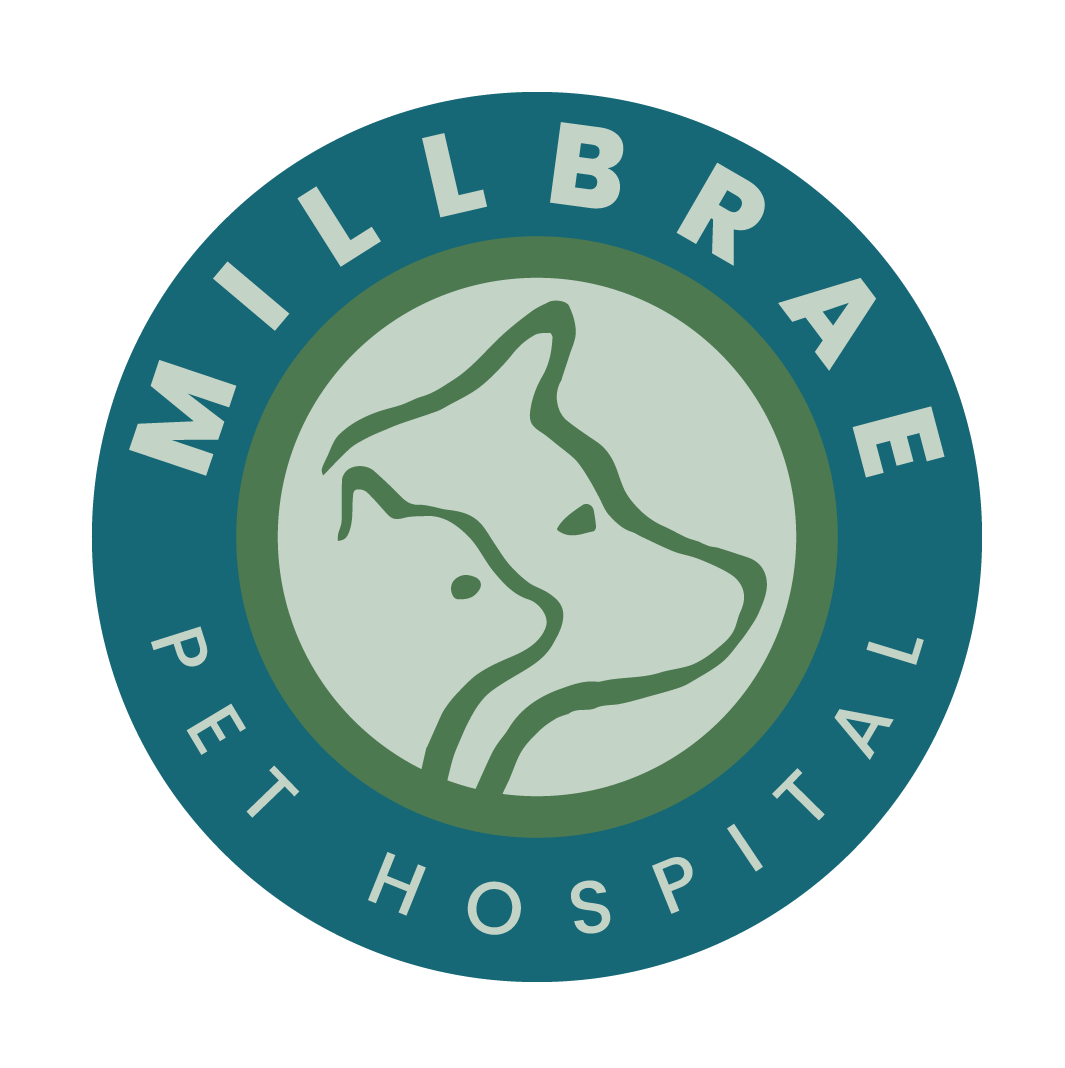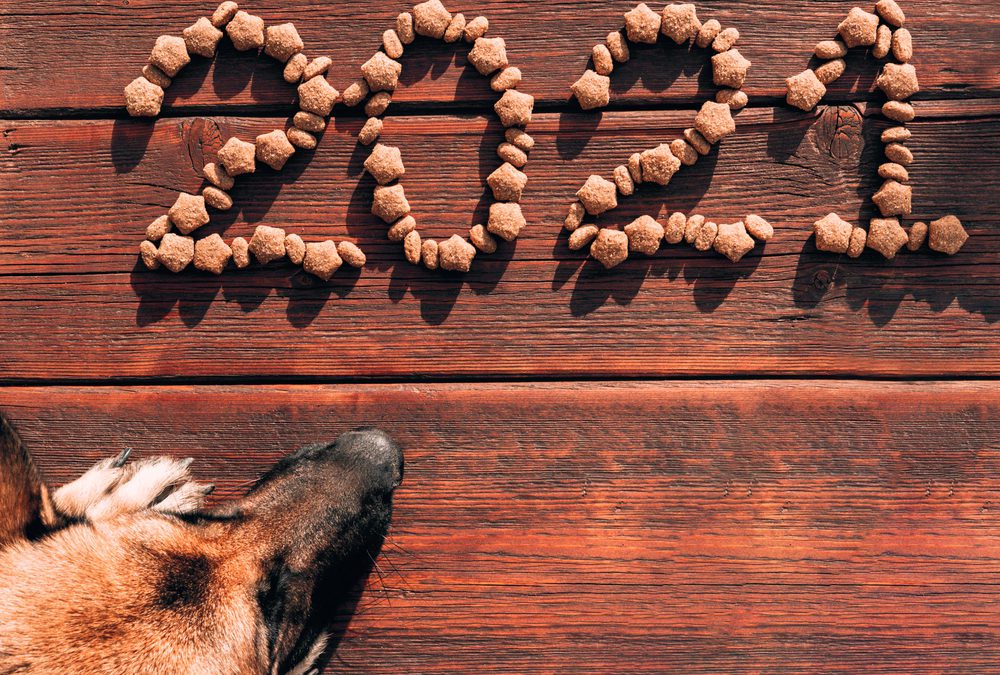The New Year is the perfect time for a fresh start and to set new goals for yourself and your four-legged companion. Our furry pals bring fun adventures and unconditional love to our families, and they depend on their pet parents to care for them in every aspect. As you work through your New Year’s resolutions and goals, ensure you include your pets in your lists. Follow our Millbrae Hospital team’s four tips to ensure your pets are healthy in 2021 and beyond.
#1: Keep your pet’s smile sparkling
We get that brushing your own teeth is a chore, and remembering to brush your pet’s teeth can seem almost impossible. However, pet dental health is so much more than ensuring your pet’s breath is tolerable when they shower you with slobbery kisses. In fact, dental disease is so common in pets that by age 3, more than 70% of cats and dogs will have some form of periodontal disease, which can affect your pet’s overall health and cause kidney, liver, and heart problems. Brushing your pet’s teeth twice daily will greatly reduce the build-up of tartar and dangerous bacteria on their teeth. If daily toothbrushing is not an achievable goal, try committing to brushing your pet’s teeth three times a week to improve their oral health, using the following guidelines:
- Always use a pet-safe toothpaste approved by the Veterinary Oral Health Council (VOHC).
- Use a pet-specific toothbrush, since a human toothbrush won’t fit well in your pet’s mouth.
- Never substitute pet toothpaste with human toothpaste, which contains ingredients that are harmful to pets.
- Home dental care should be a supplement to professional veterinary cleanings, not a replacement.
If your pet will not accept toothbrushing, consider daily use of dental wipes, oral rinses, or dental treats to improve your pet’s oral health.
#2: Stay active with your pet
Pet obesity has become an epidemic, with more than 50% of U.S. dogs and cats overweight or obese, yet many pet parents are unaware that their extra fluffy dog or cat is actually overweight. Overweight pets are more at risk for health issues, including high blood pressure, lung and kidney disease, diabetes, and some cancers. Exercising and staying active with your pet is not only a great way to help manage their weight and improve their overall health, but good for you, too. If couch cuddles or trips to their food bowl are your pet’s idea of exercise, try incorporating short, frequent walks into their routine to help them burn calories and decrease their chances of becoming overweight or obese. For our feline friends, or pets who resist traditional activities such as walks or runs, try incorporating games of fetch or chasing a catnip filled toy. Staying active is also important for your pet’s mental health and will help prevent inappropriate behavior because of boredom. For indoor pets, or when it’s too cold for outdoor activities, consider the following:
- Indoor fetch, using soft toys that will not damage household items
- A game of hide and seek, placing small portions of your pet’s food or treats throughout the house for them to find
- Exercise with toys that play to your cat’s natural stalking behavior, such as a feather wand
- Placing treats in a puzzle bowl or toy, such as a Kong
- A game of tug-of-war with a rope or other toy
#3: Feed your pet high quality food
The popular New Year’s resolution to eat a healthier diet is not only for people. The New Year is also a great time to evaluate your pet’s diet, and determine if they are getting the nutrients they need to remain healthy. Choosing the best food for your pet can be overwhelming, especially with all the available choices. However, pets require specific nutrients that differ from our own, so ensure you are not swayed by human diet trends, such as limited ingredient or vegetarian diets, that may not be healthy for your pet. The Association of American Feed Control Officials (AAFCO) has established guidelines for pet food labels and balanced nutrition. Ensure your pet’s food meets AAFCO standards by checking that the food is labeled as complete and balanced for their life stage. Depending on your pet’s age, breed, and health status, various nutrients should be included in their diet. For example, older pets with joint disease may benefit from a complete food that contains glucosamine for joint support. Always consult with your veterinarian when changing your pet’s diet, as sudden nutritional changes or additions can lead to digestive problems or severe illness, such as pancreatitis.
#4: Schedule a winter wellness exam for your pet
Annual, or more frequent, veterinary visits are key to ensuring your pet is healthy into their grey muzzle years. In addition to vaccinations and parasite control, regular wellness examinations allow your veterinarian to perform a thorough nose-to-tail exam on your pet. Always discuss your pet’s lifestyle and home habits with your veterinarian, since subtle changes in your pet’s behavior or activities at home could indicate a more serious health issue. Your veterinarian may recommend yearly blood work to evaluate organ health and aid in identifying potential long-term health concerns. Early diagnosis and treatment of illnesses, such as infections or kidney disease, are vital for a successful outcome.
Our Millbrae Pet Hospital wants to ensure your pets remain healthy for many years to come. Call our office if you have any questions about your pet’s health, or to schedule a winter wellness exam.

